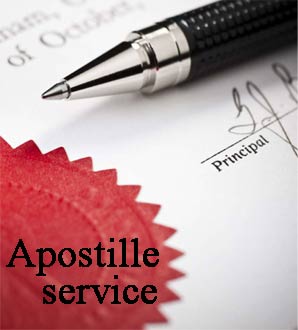Trustworthy Houston TX Apostille Solutions for Your Legal Records
Trustworthy Houston TX Apostille Solutions for Your Legal Records
Blog Article
Revealing the Vital Function of Apostille in Simplifying International Record Validation Processes
In the world of worldwide affairs, the validation of documents holds extremely important value. By fastening an apostille to a file, it undertakes a simplified validation that is acknowledged across many countries, thus alleviating the burdens linked with cross-border paper authentication.
Understanding Apostille Fundamentals
In the realm of record recognition for worldwide use, realizing the fundamental concepts of apostille authentication is essential. An apostille is a specific certificate that validates the authenticity of a record for usage in foreign countries that are component of the Hague Apostille Convention.
Apostilles are typically released for crucial documents such as birth certifications, marital relationship certificates, and scholastic records. The key elements of an apostille consist of the name of the country where it was issued, the name of the person authorizing the file, the capability in which the individual authorized the record, the seal or stamp of the providing authority, and the date of issuance. By understanding these essential elements of apostille verification, companies and individuals can navigate the intricacies of worldwide paper validation with self-confidence and performance.
Advantages of Apostille for Validation

In addition, the apostille streamlines the verification procedure by offering a standard certificate that confirms the credibility of the file, such as birth certifications, marriage licenses, notarized deeds, and scholastic records. This standard layout reduces the danger of rejection as a result of unfamiliarity with foreign papers, thus improving the effectiveness of cross-border deals.
Additionally, the apostille helps in getting rid of the requirement for several layers of verification by federal government authorities, as the apostille itself indicates the file's validity. This not only accelerates the paper validation process but likewise reduces the connected expenses and governmental hurdles, making it a convenient and cost-efficient remedy for individuals and businesses involving in international activities.
Simplifying Cross-Border Record Verification
Simplifying cross-border file authentication, the apostille gets rid of the demand for commonly complicated and extensive recognition treatments normally needed when offering files in foreign countries. By attaching an apostille to a document, the providing country licenses the authenticity of the file, making it readily acceptable in various other countries that are part of the Hague Apostille Convention.
Moreover, the apostille system boosts the safety and security and dependability of cross-border paper recognition by supplying a transparent and internationally accepted mechanism for verifying the validity of files. This simplification of authentication processes not only advantages individuals and organizations looking for to operate internationally but also promotes smoother communication and partnership in between countries by making certain the integrity of common documentation.
Value of Apostille in Legalisation

Apostille ensures that legal files such as birth certifications, marital relationship certificates, powers of lawyer, and court records are identified and approved in foreign jurisdictions. The apostille procedure minimizes the bureaucratic obstacles and lengthy treatments normally associated with document legalization, making international deals a lot more reliable and legally binding.
Apostille Vs. Traditional Validation Techniques
Comparing apostille with typical recognition approaches exposes unique differences in the effectiveness and simplicity of document verification procedures for global usage. Apostille, as a standard and streamlined method developed by the Hague Convention, provides a more straightforward technique to validating papers compared to conventional methods. Traditional recognition processes typically involve numerous actions, consisting of notarization, qualification by federal government authorities, and consular legalization, which can be cumbersome and taxing.
Apostille, on the other hand, simplifies this process by licensing files with a solitary apostille certification provided by a proficient authority in the country where the file comes from (Houston TX Apostille). This certification is identified by all member countries of the Hague Convention, getting rid of the demand for further consular office legalisation. Therefore, apostille considerably minimizes the time and effort needed for document validation, making it a favored option for individuals this contact form and companies involved in international transactions
Conclusion
In conclusion, apostille plays a vital duty in simplifying international record validation procedures by providing a standard technique of verification that is acknowledged across participating countries. By improving the legalization process, apostille gets rid of the requirement for several layers of recognition, reducing time and prices related to cross-border paper verification. This efficient system benefits people and companies seeking to use foreign papers for lawful objectives, ensuring smoother global purchases.
By attaching an apostille to a file, it undertakes a simplified recognition that is acknowledged across various nations, therefore reducing the problems connected with cross-border file verification. Simplifying cross-border record authentication, the apostille gets rid of the requirement for commonly complicated and prolonged validation procedures usually needed when offering files in foreign countries. By fastening an apostille to a file, the issuing country accredits the authenticity of the record, making it conveniently acceptable in other countries that are part of the Hague Apostille Convention. By attaching an apostille to a paper, the providing country licenses the credibility of the trademark, seal, or stamp on the browse this site file, making it valid for use in an additional member nation of the Hague Apostille Convention without the requirement for additional legalization.

Report this page